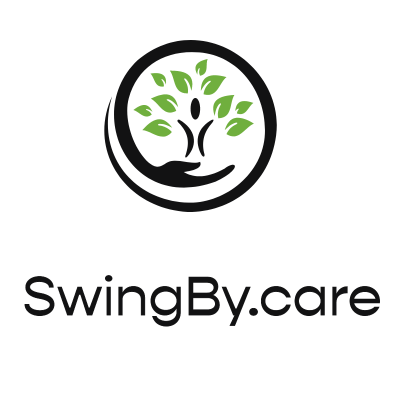Every June, we recognize Alzheimer’s and Brain Awareness Month. We use this time to help bring attention to and spread information on Alzheimer’s disease and other dementia-related conditions. It’s essential to shed light on this topic throughout the year, but in June we get to shine a pronounced spotlight on it and help others better understand the disease, the signs and symptoms, and prevention and treatment methods. This month serves as a reminder of the importance of understanding, supporting, and advocating for those affected by Alzheimer’s disease. With a deeper understanding of the disease and the warning signs, there can be earlier detection and intervention, potentially helping to slow the progression of the disease.
What is Alzheimer’s Disease?
Alzheimer’s disease is a progressive neurodegenerative disorder characterized by memory loss, cognitive decline, and changes in behavior and personality. It affects brain regions involved in memory, language, and reasoning, gradually impairing one’s ability to function independently. The Alzheimer’s Association stated that more than 55 million people worldwide are living with Alzheimer’s or another form of dementia. It affects millions of individuals worldwide, robbing them of their memories and causing heartache to their loved ones as they see the cognitive decline firsthand.
Are Dementia and Alzheimer’s The Same?
The terms Alzheimer’s and dementia may be thrown around interchangeably, and while dementia and Alzheimer’s disease are related, they are not the same. Alzheimer’s is a specific type of dementia, the most common one. Dementia is an umbrella term for symptoms affecting memory, thinking, and social abilities severely enough to interfere with daily functioning. Alzheimer’s is a progressive brain disorder that leads to memory loss and cognitive decline.
5 Main Symptoms of Alzheimer’s:
- Memory Loss: One of the most common early signs. This entails memory loss that disrupts daily life; some examples include: forgetting recently learned information, important dates or events, and repeatedly asking for the same information.
- Challenges in Planning or Problem-Solving: This can manifest as trouble following a familiar recipe, managing finances, or completing tasks that require sequential steps.
- Difficulty Completing Familiar Tasks: This could include forgetting how to drive to a familiar location or forgetting the rules of a favorite card game.
- Confusion with Time or Place: Individuals with Alzheimer’s may lose track of dates, seasons, or the passage of time.
- Changes in Mood or Personality: Mood swings, irritability, and personality changes are common. They may become withdrawn, suspicious, or agitated, especially in unfamiliar situations.
Prevention Methods:
While there is no proven way to prevent Alzheimer’s disease, adapting certain lifestyle habits may help reduce the risk of cognitive decline.
- Regular Exercise: Walking, swimming, or cycling, can help improve overall health and reduce the risk of cognitive decline.
- Healthy Diet: Following a balanced diet rich in fruits, vegetables, whole grains, and lean proteins, while limiting saturated fats and refined sugars, may support brain health.
- Mental Stimulation: Keeping the brain active through activities like reading, puzzles, learning new skills, or engaging in social interactions can help build cognitive reserve.
- Managing Chronic Conditions: Proper management of chronic conditions such as diabetes, hypertension, and obesity may help reduce the risk of Alzheimer’s disease.
- Quality Sleep: Getting adequate and quality sleep is essential for overall brain health and cognitive function. Sleep is important and restorative for our bodies throughout every age and stage of our lives.
Treatment Options:
Similar to how there are no guaranteed preventive measures, there is currently no cure for Alzheimer’s disease. However, treatments and interventions may help manage symptoms and improve quality of life.
- Medications: Medications such as cholinesterase inhibitors and memantine may help improve cognitive symptoms and manage behavioral symptoms.
- Therapy: Cognitive behavioral therapy, physical therapy, and occupational therapy can help while navigating an Alzheimer’s diagnosis.
- Support Groups: Support groups can provide a safe space for individuals dealing with Alzheimer’s, as well as their caregivers, and loved ones.
- Participating in Clinical Trials: Offers access to innovative therapies while also contributing to more research in the field and hopefully a cure in the future.
Seniors experiencing cognitive changes should undergo a comprehensive evaluation by a healthcare professional, including a medical history, physical examination, and cognitive assessments. These can help provide early detection and early intervention.
Caring for a loved one with Alzheimer’s can be challenging and emotionally draining, as well as physically and mentally exhausting. You are not alone! There are people all over the world embarking on the same journey as you. It may feel isolating, but you aren’t alone in this experience. By attending a local support group, you may find the weight on your shoulders easing as you hear similar stories of those going through what you are going through. Be sure to take care of yourself while you take care of your loved one.
As we honor Brain Awareness Month, let us come together to support seniors and their families and friends affected by Alzheimer’s disease. With a better understanding of Alzheimer’s, we can empower seniors to live fulfilling lives despite the challenges associated with the disease. We can continue to use our voices to advocate for increased research funding, access to quality care, and support for those dealing with this devastating disease. Whether it be you, a friend, a family member, or a co-worker, we all know someone whose life has been impacted by the effects of Alzheimer’s. Together, we can make a difference in the fight against Alzheimer’s disease and work towards a future where no one has to face the challenges of cognitive decline alone.
Written for Senior Industry Services by Lauren Hope Bartling









